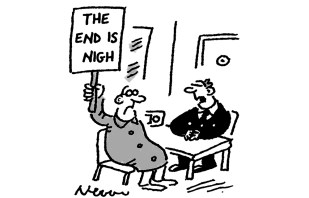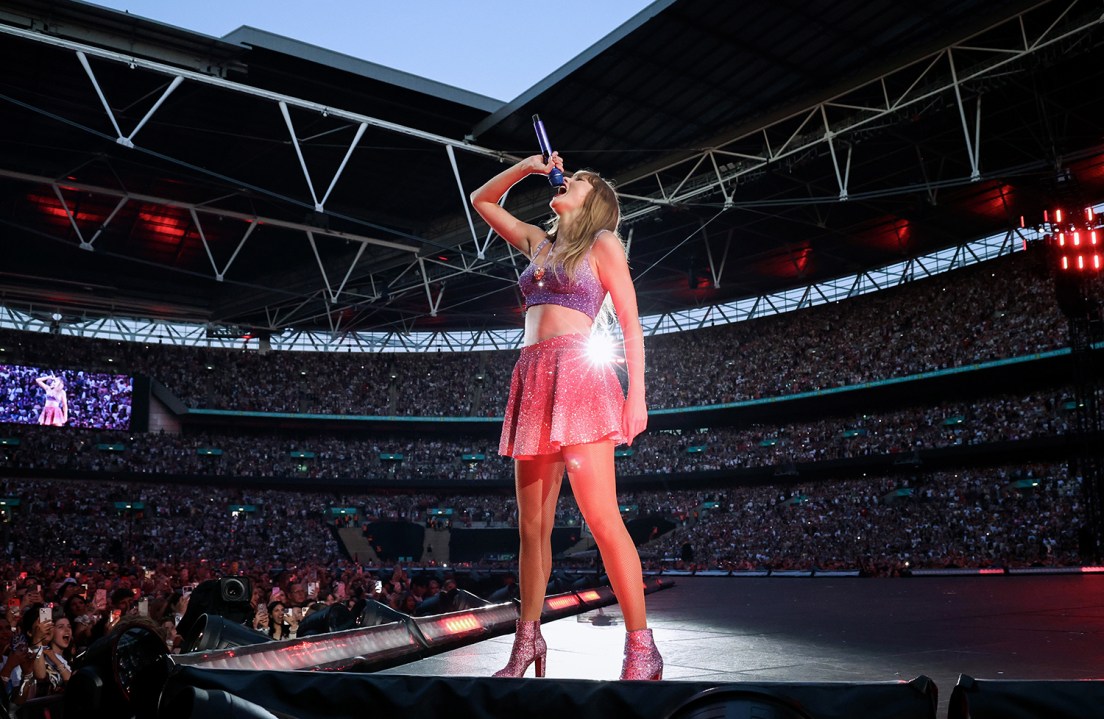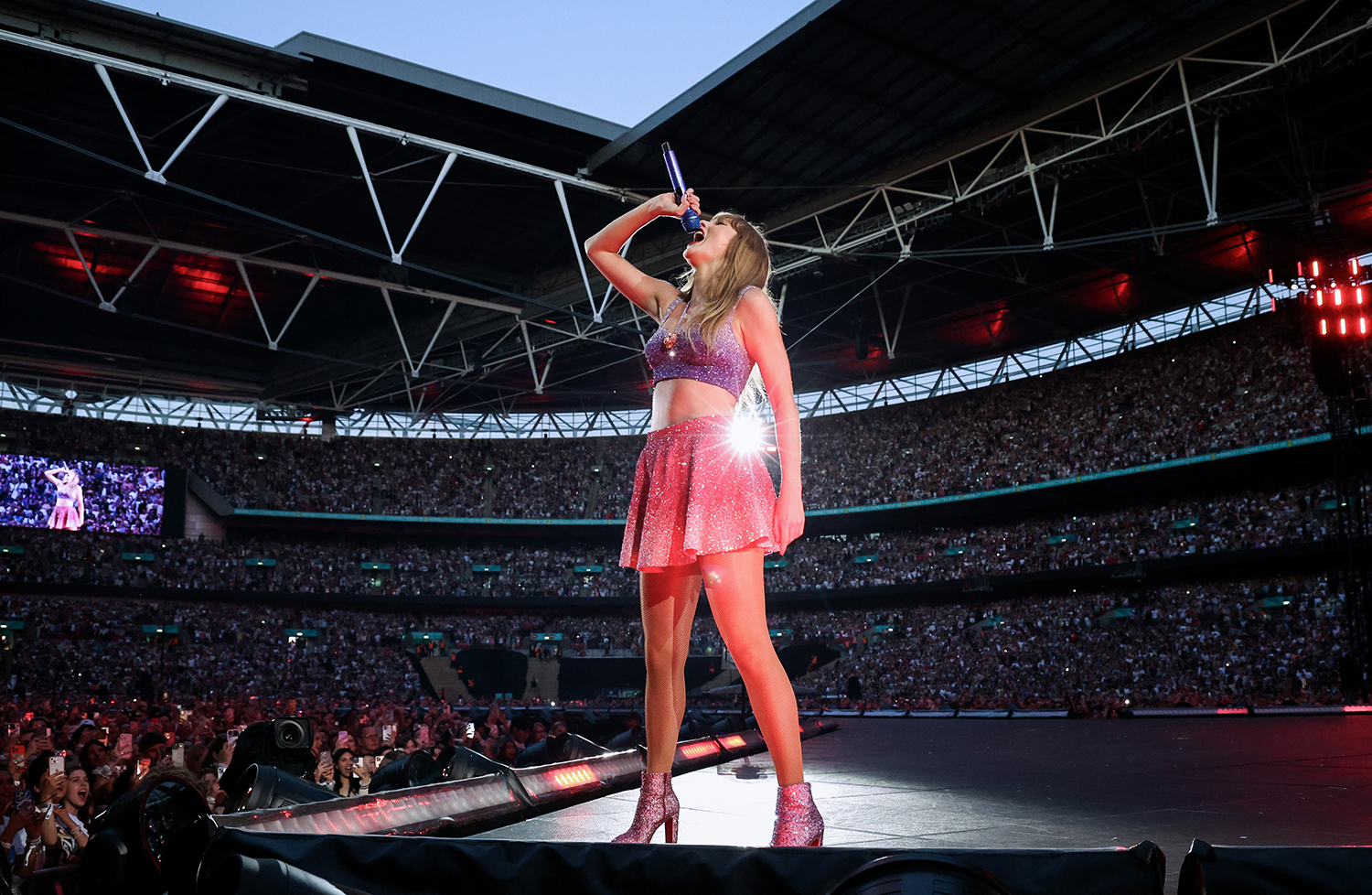Taylor Swift is the last of the monocultural pop icons. Put it this way: I bet you’ve heard of her. Your parents have heard of her. Your children have heard of her – and so have your grandchildren. This used to be commonplace – but not now. She transcends pop music.
This might be why so much of the discussion of the Swift phenomenon has been about the facts and figures: hers is the first tour to gross more than $1 billion, while global leaders have begged for her to visit their countries due to the financial boost she brings. Not to mention her tendency to pump out new editions of her albums every 20 minutes to keep her top of the charts as loyal fans loyally part with their cash. And, certainly, the Swift organisation is abreast of the numbers: at Wembley I saw for the first time seats sold where their occupants didn’t have a view of the front of the stage – which is unforgivable. Yes, there’s the demand – you’ll have to pay around £800 on a resale site for one of these seats – but, really? Should artists and promoters pocket that money just because they can?
And yet this was the least cynical evening out I think I have ever participated in. The whole thing was suffused with an atmosphere of intense kindness and care, generated by her fans, the ‘Swifties’. They were swapping friendship bracelets (my hard-swearing 23-year-old daughter was taking time to talk to young girls and give them her spares), admiring each other’s outfits, taking photos and beaming and laughing and treating it like a giant house party – one almost entirely without alcohol. By that point, they had forgotten the price they had paid to get in. A friend who couldn’t get a ticket took her daughter to Wembley anyway, where scores of other girls had the same idea, and held their own party outside the stadium, everyone swapping numbers and pledging friendship and dancing until the fireworks bursting over the stadium signalled the show’s end. That, more than the staging (spectacular), the musicianship (impeccable) or the set (long, involving and ultimately triumphant) was what came away from Wembley with me, that sense of uncompetitive community. That, perhaps, is Swift’s greatest achievement – to create that love, even while being an unrepentant money-extraction machine. She nurtures and encourages her fans, and while she says the same things every night between songs (and admitted on her last album, The Tortured Poets Department, that it was all boilerplate and half the time she’s dying inside) she possesses the gift of making herself seem utterly sincere. Perhaps pop music’s gain was acting’s loss.
Important, too, is something that rarely gets mentioned in the reviews: her singing. Swift is no Aretha Franklin; her voice does not leap octaves or convey unbridled passion. It is a nice, clear, unremarkable instrument. It’s how she uses it that is brilliant. Her phrasing, always, is very precise and particular, in a way that sounds less like singing than talking. She has tics – in her modulation and delivery – that make her sound conversational, which she emphasises with lyrics that aren’t meant to read like poetry but to be heard like chatter. I think that’s why the songs hit home: they seem less like songs to her fans than girly, gossipy exchanges.
The lyrics, too, encourage that. Swift presents as a nice girl, but her lyrics are often not so. They are vengeful and angry. But she’s some sort of alchemist who converts rage into joy. As I looked around me, that joyful obsession was everywhere. A few feet to my right, a girl who might have been seven or eight was standing on her seat, face screwed up with emotion, singing every word back at the stage – every word about sexual jealousy, about drug-addled boyfriends, about emotional revenge. Swift knows her audience, and they know her, despite their having almost nothing in common.

And the show? I feared three hours would be too long (this appears to be the summer of marathon shows, what with Bruce Springsteen and the Foo Fighters doing the same), but it wasn’t, because the pace was unrelenting and the switches between the ‘eras’ that give the tour its name were well handled. The section devoted to Folklore and Evermore, her lockdown albums of subdued Americana, was a highlight because of the care taken in changing the mood. Mishandled, it could easily have been a disaster. Like everyone else in their right mind, I think we should have heard more from 1989 which is still, I think, her best album.
But the show wasn’t designed for me. It wasn’t designed for anyone walking in with an ounce of cynicism, even if cynicism is justified. It’s a delight, because of its real stars – the girls and young women who transformed a concrete bowl into the largest, friendliest house party in the world.








Comments